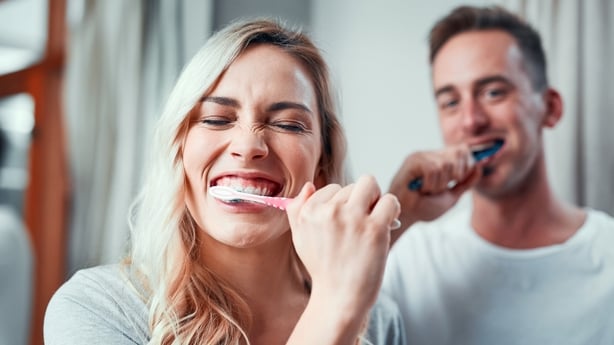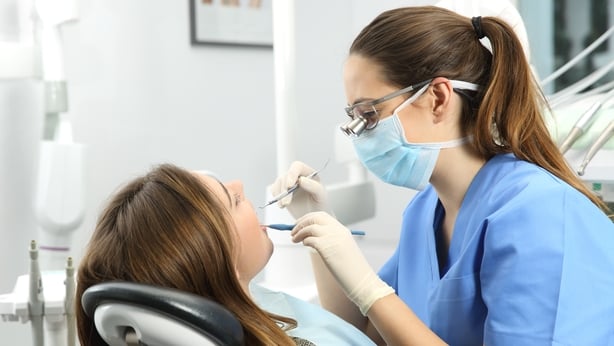Since wearing a face mask more often, have you noticed something a little off with your breath? Is your morning coffee smelling extra pungent? Can you still notice the aroma of your tuna sandwich lingering since lunch? Are you nervous that you've always had strong-smelling breath, unbeknownst to you?
If so, you're not alone.
My mask smells like Oregano for some reason today. Which is a much needed upgrade from my own bad breath. #COVID19 #internalmedicine
— Nivaas Thanoo (@NivaasThanoo) November 1, 2020
Before you start to fear the worst though, your breath may not have always been as noticeable to others as you think.
According to Dr. Jennifer Collins, a lead general dentist at Northumberland Dental Care, wearing a mask may make our breath a little more aromatic than usual.
"We tend to breathe through our mouth rather than our nose while wearing a mask," she explains. "This leads to a drier mouth and decreased saliva production, which can exacerbate the symptoms."
In case you were wondering how terrible it is to eat Chili Cheese Fritos when you have to wear a mask for hours...
— NonyaBiz! 🏳️🌈 (@LSD122070) October 27, 2020
THIS IS YOUR WARNING ⚠️
😂🤮🤢🤭🤣
However, while we would like to think that the mask is the cause, there may be other contributors to sharp breath.
"Halitosis or bad breath is often caused by trapped food particles between the teeth or under the gums. The bacteria in our mouths work to naturally break down food, leaving behind smells that can contribute to bad breath," says Dr. Collins.
Here are some steps to keep bad breath at bay:
1. A solid brushing routine
A consistent oral health routine can drastically reduce your chances of developing bad breath. Brush twice per day for two minutes with a fluoride toothpaste and floss regularly. Remember to also brush your tongue. It is important to replace your toothbrush every three months or after an illness.

2. Wash away odours
Make sure to drink plenty of water, particularly after a meal. Drinking water helps to promote healthy saliva production, which washes away leftover food particles and helps deter the growth of smelly oral bacteria. Too much caffeine can have the opposite effect by slowing down saliva production.
3. Try an odour-cruncher
Try counteracting the effects of strong-smelling foods by eating parsley, or crunchy fruits and vegetables such as carrots, apples and celery, which will increase saliva production and help wash away impurities.
4. Avoid smoking
Aside from all the obvious health implications that come with it (according to the HSE, Tobacco use is the leading cause of preventable death in Ireland), smoking is also a common cause of bad breath. It stains teeth, irritates the gums and increases your chances of tooth decay and gum disease.

5. Regular dental visits
If your bad breath persists, it could be a sign of tooth decay, gum disease or an underlying medical condition. Schedule a regular check-up with your dentist or dental hygienist to help maintain your oral health and prevent bad breath.
Dr. Jennifer Collins is lead general dentist at Northumberland Dental Care in Dublin 4, part of the Dental Care Ireland group. For more information, visit northumberlanddentalcare.ie

